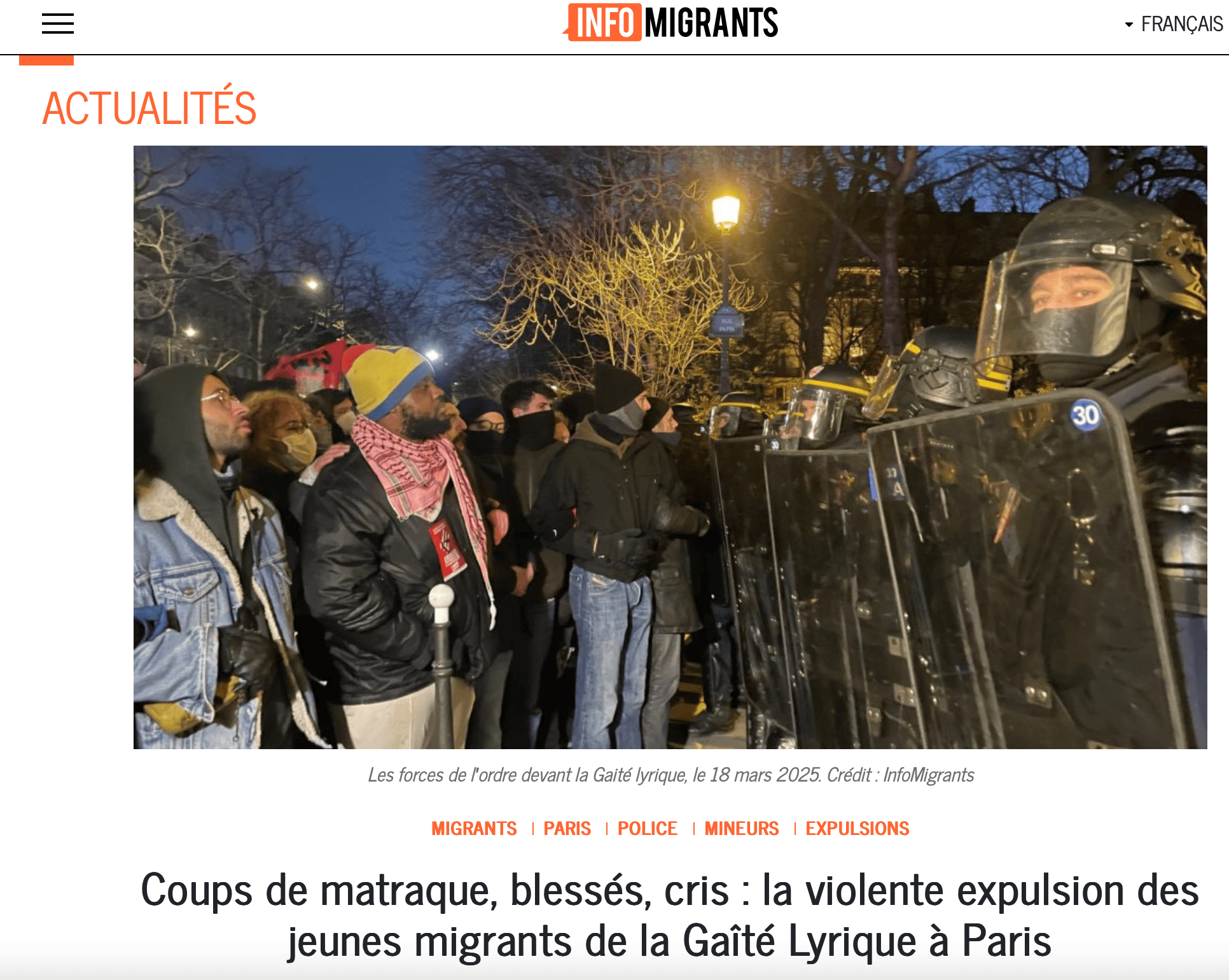The Gaîté Lyrique is a cultural venue in the City of Paris, which hosts a variety of events right in the heart of the capital. With a total surface area of 2000m², the place is well known among locals as it hosts cocktails, conferences, club nights, fashion shows, dinners, and music concerts.
During the past three months, however, its purpose has shifted, in spite of itself. The Gaîté Lyrique became a precarious shelter for hundreds of young migrants, many of whom are unaccompanied minors.
In contravention of the rights set out in the International Convention on the Rights of the Child (CRC), and also of the French child protection system, many have been living on the streets since their arrival on French territory. Faced with this harsh and unwelcoming reality, since 10 December 2024, they have been occupying this space, supported by different NGOs and associations.
For a couple of months, during a particularly cold winter, they have been able to sleep inside. They have been able to feel minimally safe —if it is possible to say so—as they still face constant and multiple threats. Threats of eviction, threats linked to the fact that they do not have a legal status, that they do not have access to proper accommodation, threats linked to the lack of economic support, educational support, among many others. But also threats from people who do not like their presence here.
On 17 March 2025, the structural violence of the French state’s refusal to welcome them reached another level. After a decision pronounced by the Administrative Tribunal of Paris in February, declaring that the Gaîté Lyrique should be “liberated”, the Préfecture de Police announced the evacuation of the space.
The news was received with a lot of apprehension by the young migrants. During a French class in an association in the city, one of my students told me: “Did you see, Madam, about the Gaîté? I am not there, thankfully, but I am afraid for my friends.” On the eve of the eviction plan, my French class was particularly empty, as many tried to find solutions, tried to support the demonstration against the forced eviction.
One of my students, who is sheltered at the Gaîté, arrived quite late to class, which is particularly unusual, as he is one of the most eager and motivated to learn. He was also quite absent while he was there. He excused himself and left to talk on the phone. By the end of the class, lost and with a blank stare, he looked at me and said: “It’s not going well, Madam.” I did not know what to reply. I too had an empty look. I tried to comfort him, not sure if I succeeded. He smiled at me, as he usually does. But what I do know is that I might not see him again.
Early in the morning on 18 March, dozens of heavily armed police officers were positioned in front of the cultural centre. It did not matter that these young migrants had their administrative procedures in Paris: social, medical, legal, educational, and solidarity networks. It did not matter that it was still cold outside and that no permanent accommodation solutions were proposed for them.
The police were beating and hitting with truncheons, even though the young people were trying to organize their few belongings and the demonstrators were peaceful. It did not matter that, in this violent process, their bags were left behind. The lives of over four hundred young people did not matter. But Gaîté Lyrique will be able to regain its role as a cultural centre. That, I know, mattered to the French State. And I can only say: “It’s not going well, Madam.”
Image Credits: InfoMigrants

